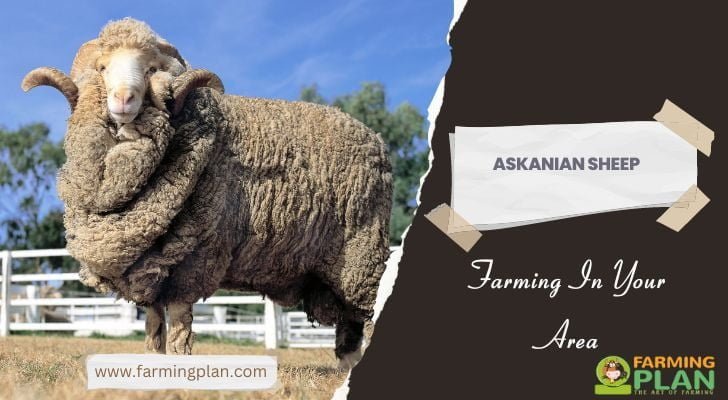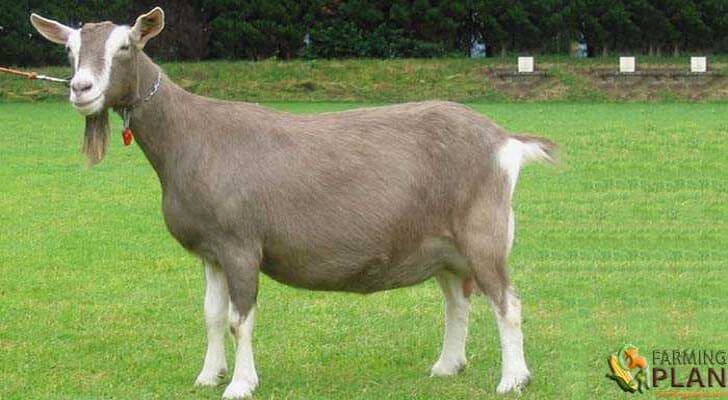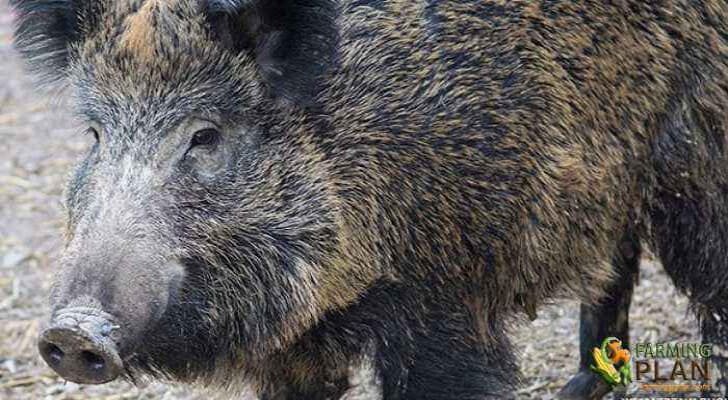Are you looking to get into sheep farming, but don’t know where to start? Consider Askanian Sheep! These hardy, docile animals can become a reliable source of income if managed properly. The Askanian breed originated in Ukraine and is specially bred for its fine-wooled fibers that are perfect for spinning yarns or creating cozy blankets, sweaters and more. They boast a high capacity for lambing as well as being relatively low maintenance compared to other breeds of livestock! This blog post will provide an overview of material needs, housing considerations and other general information so that you can set off on your new agricultural endeavor with confidence.

History & Origin
Askanian Sheep, the indigenous breed of sheep in Ukraine, has a rich history and fascinating origin. They have been raised in Ukraine for over 1,000 years and are known for their resilience and adaptability to harsh weather conditions. It is believed that the Askanian Sheep breed originated from the Iranian plateau and migrated to Ukraine through the Caucasus Mountains. These sheep are highly valued for their meat and wool, which is used to create traditional Ukrainian clothing and blankets. Today, efforts are being made to preserve and increase the population of Askanian Sheep as they face the threat of crossbreeding with other breeds.
Characteristics
Askanian sheep are unique and fascinating creatures. With their striking appearance and impressive physical attributes, they certainly stand out among other breeds of sheep. On top of their distinctive appearance, Askanian sheep are also hardy and adaptable, making them ideal for a variety of different environments. One of the most notable characteristics of these sheep is their incredibly thick coat, which provides them with protection from harsh weather conditions. Whether you’re a farmer looking to add a new breed to your flock or simply someone with an interest in the natural world, Askanian sheep are worth learning more about.
Feed
The Askanian sheep are a fascinating breed, known for their endurance and adaptability to harsh climates. Originating from the Caucasus Mountains, they have an impressive history of serving as invaluable livestock for shepherds in the region. These sheep are hardy creatures, with thick wool that protects them from extreme weather conditions. They are well known for their resistance to disease and their ability to thrive in areas with limited resources. Additionally, they are a great source of nutritious meat and milk. Whether you’re a farmer looking for a resilient breed or an enthusiast interested in learning more about sheep, the Askanian sheep are certainly worth researching.
Usage
Askanian Sheep are a breed of sheep known for their excellent wool quality and high adaptability to harsh environments. Originally from the Caucasus region, these sheep have since been spread throughout Europe and Asia for their utility and unique features. Askanians are known for their impressive resistance to disease and parasites, as well as their ability to thrive in areas with low feed quality. In addition to its physical robustness, Askanian wool is highly sought after in the textile industry for its softness and luster. Overall, Askanian Sheep are a valuable asset to any farm or ranch looking for a resilient and productive breed of sheep.
Special Feature
The Askanian sheep, native to the Askania-Nova Biosphere Reserve in Ukraine, is a unique breed that has adapted to survive in the harsh steppe environment. These sheep have a distinctive appearance, with long, curling horns and a coarse, woolly coat that keeps them warm in the cold winters. What sets them apart from other sheep breeds is their ability to thrive on a diet of sparse vegetation and brackish water. This makes them an important part of the ecosystem and a fascinating subject for researchers studying adaptation and biodiversity. Despite their fierce appearance, Askanian sheep are quite docile and are often kept for their wool and meat. Their historical and ecological significance makes them a valuable asset to the region, and they continue to be a symbol of resilience and strength.
Understand the basics of Askanian sheep
Askanian sheep farming is an essential part of agriculture in many areas of the world. These animals are prized for their high-quality wool and meat, making them a staple of many rural communities. For those interested in starting a sheep farm, it’s crucial to understand the basics of Askanian sheep farming. This includes factors such as the animals’ dietary needs, life cycle, and breeding habits. By learning about these essential aspects of sheep farming, prospective farmers can ensure they’re providing their flock with the best possible care. Additionally, it’s important to understand the business side of sheep farming, such as marketing, sales, and pricing strategies. With the right knowledge and dedication, Askanian sheep farming can be a rewarding and lucrative endeavor.
Acquire the necessary equipment
If you’re looking to start a farming venture, you may want to consider raising Askanian sheep. These beautiful animals are known for their high-quality wool and friendly demeanor, making them a joy to work with. Of course, if you want to successfully raise these sheep, you’ll need to make sure you have all the necessary equipment and supplies on hand. This includes items like fencing, feeders, and of course, shearing equipment. By taking the time to carefully source and acquire these items before you get started, you can set yourself up for success and ensure your Askanian sheep are healthy, happy, and productive.
Establish relationships
Askanian sheep are a unique breed known for their adaptive nature and hardiness in harsh climates. To keep these animals healthy and thriving, it’s important to establish strong relationships with local veterinarians. Working with a trusted veterinarian can ensure that the Askanian sheep are receiving the best possible care and treatment. These relationships can help farmers stay informed on preventative measures and treatments for common illnesses that affect Askanian sheep. In turn, the sheep can continue to grow and thrive, providing their owners with a profitable and sustainable farming business. Establishing these relationships not only benefits the sheep, but also the farmer and the surrounding community.
Research available government grants
Askanian sheep farming is a rewarding and fulfilling endeavor that can contribute to the local economy and provide delicious meat and wool products for consumers. If you’re considering starting or expanding your Askanian sheep operation, it’s important to research available government grants or subsidies in your area to help offset some of the associated costs. These grants and subsidies can provide crucial support, whether you’re looking to purchase land or equipment, improve your infrastructure, or develop your marketing strategy. By taking advantage of these opportunities, you can give your Askanian sheep farming business the boost it needs to thrive and prosper.
FAQ
Which sheep grow faster?
Generally speaking, the type of sheep that grows faster is determined by the breed and environmental conditions. Some breeds of sheep such as Merinos and East Friesians are known for their rapid growth rate and high-quality wool production. However, other breeds such as Rambouillet, Texel, and Dorset Down may grow faster due to optimal environmental conditions.
What is the most fertile sheep?
The most fertile sheep breed would depend on the type of production system, climate and geographical location involved. Generally speaking, the Merino is the most popular and productive breed of sheep in the world. This adaptable breed can be found in a broad range of climates around the world, from cold mountains to deserts, and is highly valued for its wool production capabilities as well as its meat productivity.
Which sheep gives the finest wool?
There is no single breed of sheep that gives the finest wool. The type and quality of wool produced by any given sheep depends on a variety of factors, including the genetics, nutrition, and care of the individual animal. Different types of wool can have different properties thanks to varying degrees and combinations of softness, texture, strength, luster and color intensity.
Conclusion
So, that wraps up the basics of Askanian sheep farming. As you can see, Askanians have a long and storied history, ranging from being bred for their wool in the early 1900s to becoming a staple of Northern Ukraine. With their unique characteristics, easy feed habits, and proprietary special feature – pliant texture – they are a viable livestock option for farmers interested in raising sheep. Before getting started with an Askanian flock, however, it is important to understand the basics of the breed and preparation method; acquire the necessary equipment & supplies; develop relationships with local veterinarians for animal health care; and research available government grants or subsidies. With this foundational knowledge in place, one can leverage their resources to more effectively navigate the flock management process.


